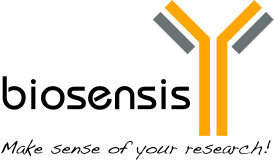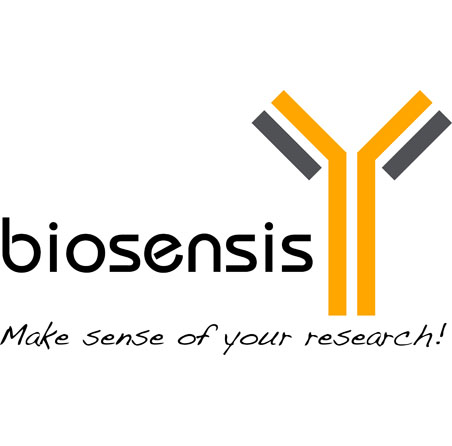Glutamate decarboxylase 1 (GAD-67), Rabbit Polyclonal Antibody
As low as
US$427.00
Only %1 left
Catalog Number
R-1726
- Product Name Glutamate decarboxylase 1 (GAD-67), Rabbit Polyclonal Antibody
- Product Description Rabbit anti-Glutamate decarboxylase 1 (GAD-67) Polyclonal Antibody (Unconjugated), suitable for WB.
- Alternative Names GAD; GAD-67; GAD1; Glutamate decarboxylase 1;
- Application(s) WB
- Antibody Host Rabbit
- Antibody Type Polyclonal
- Specificity The specificity of this antibody has been confirmed by WB against HeLa cell, human colo320 cell and whole rat brain extracts. Antibody detects 67 kDa single band under normal exposure, reduced SDS-PAGE conditions. Human; Rat
- Species Reactivity Human, Rat
- Immunogen Description E.coli-derived human GAD67 recombinant protein (14-122). Human GAD67 shares 95% amino acid (aa) sequence identity with both mouse and rat GAD67.
- Conjugate Unconjugated
- Purity Description Affinity purified on antigen column
- Regulatory Status For research use only.
Product Info
- Product Description Rabbit anti-Glutamate decarboxylase 1 (GAD-67) Polyclonal Antibody (Unconjugated), suitable for WB.
- Application(s) WB
- Application Details Western Blotting (WB). A concentration of 0.1-0.5 µg/mL is recommended for WB. The detection limit for GAD67 is approximately 0.25ng/lane under reducing conditions. Human GAD67 has a predicted length of 594 residues and MW of 67 kDa. Biosensis recommends optimal dilutions/concentrations should be determined by the end user.Not yet tested in other applications.
- Target Glutamate decarboxylase 1 (GAD-67)
- Specificity The specificity of this antibody has been confirmed by WB against HeLa cell, human colo320 cell and whole rat brain extracts. Antibody detects 67 kDa single band under normal exposure, reduced SDS-PAGE conditions. Human; Rat
- Target Host Species Human
- Species Reactivity Human, Rat
- Antibody Host Rabbit
- Antibody Type Polyclonal
- Antibody Isotype IgG
- Conjugate Unconjugated
- Immunogen Description E.coli-derived human GAD67 recombinant protein (14-122). Human GAD67 shares 95% amino acid (aa) sequence identity with both mouse and rat GAD67.
- Sequence R-1726-100NAGADPN TTNLRPTTYD TWCGVAHGCT RKLGLKICGF LQRTNSLEEK SRLVSAFKER QSSKNLLSCE NSDRDARFRR TETDFSNLFA RDLLPAKNGE EQTVQFLLEV VD
- Purity Description Affinity purified on antigen column
- Format Lyophilized. Each vial contains 5 mg BSA, 0.9 mg NaCl, 0.2 mg Na2HPO4, 0.05 mg NaN3.
- Reconstitution Instructions Spin vial briefly before opening. Reconstitute in 100 µL sterile-filtered, ultrapure water. Centrifuge to remove any insoluble material.
- Storage Instructions At -20°C for one year (Lyophilized). After reconstitution, the antibody can be stored at 2-8°C for one month or alternatively, aliquot the vial into smaller volumes and store at -20°C for a higher stability. Avoid repeated freezing and thawing.
- Batch Number Please see item label.
- Expiration Date 12 months after date of receipt (unopened vial).
- Alternative Names GAD; GAD-67; GAD1; Glutamate decarboxylase 1;
- Uniprot Number Q99259
- Uniprot Number/Name Q99259 (DCE1_HUMAN)
- Scientific Background Glutamic Acid Decarboxylase (GAD) catalyzes the conversion of glutamate to gamma-aminobutyric acid (GABA). There are two known forms of GAD; GAD65 (65 kDa) and GAD67 (67 kDa) and several isoforms of GAD67 and GAD65 have been discovered. Clustal alignments show 64.1% amino acid identity between GAD65 and GAD67 across the entire protein with higher identity being toward the C-terminal ends of the proteins. Expression of the two proteins and of the specific isoforms (for instance isoform 3 of GAD67 is not expressed in brain) also varies. This antibody reacts with GAD67 and has not yet been tested directly on recombinant GAD65 for cross reactivity. Blots of whole brain extracts appear as a single band at 67 kDa. The sequence used as an immunogen does have some identity with GAD65 however it is slight and broken up by multiple gaps.
- Shipping Temperature 25°C (ambient)
- UNSPSC CODE 41116161
- Regulatory Status For research use only.

 1800 605-5127
1800 605-5127 +61 (0)8 8352 7711
+61 (0)8 8352 7711
